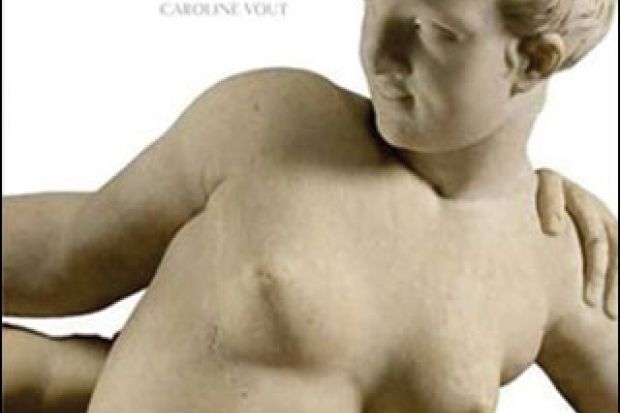Barbara Graziosi, professor of Classics, Durham University, is reading Caroline Vout’s Sex on Show: Seeing the Erotic in Greece and Rome (British Museum Press, 2013). “I left this lavishly illustrated, seductively written book on the kitchen table, and had to answer endless questions from my nine-year-old son. Vout is interested in cultural difference: ‘human nature’, she claims, ‘is the easy bit’. In fact, transhistorical experience is an important aspect of her subject. Viewers look at classical art to explore their own sexuality, not just the specifics of the ancient world.”

Ruth Richardson, honorary professor in medicine and the humanities, Hong Kong University, is reading Marije Vellekoop’s Van Gogh at Work (Van Gogh Museum/Yale University Press, 2013). “The most informative volume ever on Van Gogh’s life as an artist, apart from his letters to Theo. It’s a chronological examination of his work process from start to finish, including all his art materials, from charcoal, paper, pigments and canvas to the linen tea towel used when he was completely skint. Vellekoop deserves worldwide plaudits for this magnificent book.”

Bruce Scharlau, senior teaching fellow in computing science, University of Aberdeen, is reading Rick Levine et al’s The Cluetrain Manifesto: The End of Business as Usual (Basic Books, 2009). “While rereading this classic, written in 1999, I was surprised by how relevant it still is. It is amazing that people haven’t learned that a business has to be part of the conversation, and remain content to spout market-speak instead. Go to www.cluetrain.com, where the book is free to download, and enjoy the best social media book written before social media existed.”

Clare Hemmings, professor of feminist theory, Gender Institute, London School of Economics, has been reading Writing Otherwise: Experiments in Cultural Criticism (Manchester University Press, 2013), edited by Jackie Stacey and Janet Wolff. “I’ve been struggling to try to write differently in my own work over the past few years, as I’ve got increasingly fed up with traditional academic style and content. Writing Otherwise is a wonderful example of how to do this. It integrates memoir and sociology, psychoanalysis and geography, opera and history in the search for new form as well as new ideas. It’s playful and moving, but never loses sight of knowledge production’s politics as well as its pleasures.”

Sharon Wheeler, senior lecturer in journalism, University of Portsmouth, is reading Khaled Hosseini’s A Thousand Splendid Suns (Bloomsbury, 2008). “A request for books during an unscheduled hospital stay produced The Railway Man and A Thousand Splendid Suns off my dad’s bookshelf – neither much of a giggle. I plumped for the latter, a tale of two women’s grim lives under Taliban rule, a tad suspicious of all the superlatives thrown at it. All I can say is, every word of praise is true. But you might want to pick your time.”
Register to continue
Why register?
- Registration is free and only takes a moment
- Once registered, you can read 3 articles a month
- Sign up for our newsletter
Subscribe
Or subscribe for unlimited access to:
- Unlimited access to news, views, insights & reviews
- Digital editions
- Digital access to THE’s university and college rankings analysis
Already registered or a current subscriber? Login

